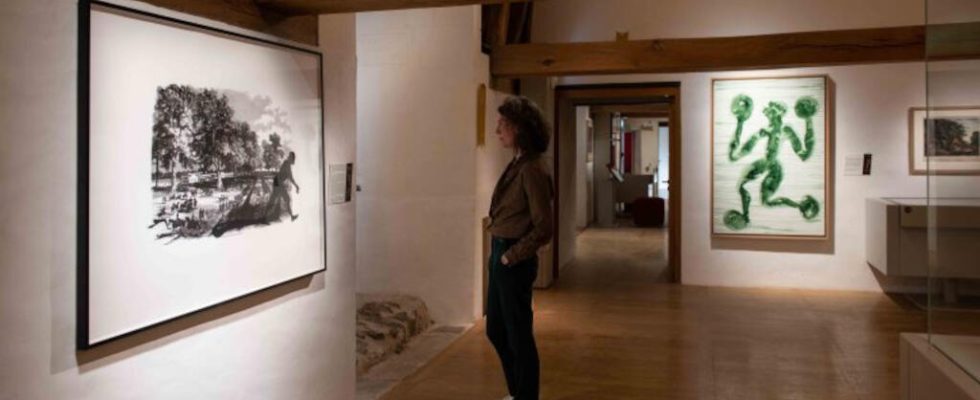“Decolonial Expressions” is the title of the exhibition offered by the Nantes City History Museum. This museum dedicated to the memory of the slave trade invites an artist and a historian, both African, every two years to revisit the collections and decolonize thought and imagination.
” Until lions have their own history, the history of the hunt will glorify the hunter. By virtue of this principle, the Nantes City History Museum decided four years ago to give a voice to those whom history has long deprived of a voice.
” We realized, after the museum was open, that these old documents conveyed something, a representation, an ideology, a vision of the other, analyzes Krystel Gualdé, scientific director of the museum. Whatever we said, whatever we did, was almost stronger than our words. And this is where we came up with the idea of systematically inviting a historian from the African continent and one or more artists from the African continent. »
This year, the museum called on the Cameroonian historian François Wassouni, the artists Barthélémy Toguo, Kara Walker and Jean-François Boclé. They confront their knowledge and their art with the museum collection made up of pieces inherited from Nantes slave traders.
” On this map of Africa, which is a Dutch map from 1644, what must be understood is that, of course, it is a geographical document, but it is also a political instrument, continues the curator. And the notion of decolonial expression is that, it is to allow a historian from the African continent to come and tell how this object is a political object that gives a vision of Africa. This vision of Africa is a territory in which there is no city, there is no culture, no kingdom, there is no inhabitant. And that gives the impression of a territory in which we can come and help ourselves since there would be nothing. »
Jean-François Boclé is an artist whose work entitled “Besides memory” looks back on the Black Code, this set of 60 articles of law drafted under Louis XIV and governing the condition of slavery. ” It is a Martiniquais who puts us back on the school benches, because he never learned, on the school benches and on the blackboard, the history of the slave trade », specifies Krystel Gualdé.
For these artists and scientists, it is less a question of deconstructing than of co-constructing a shared and universal history.
